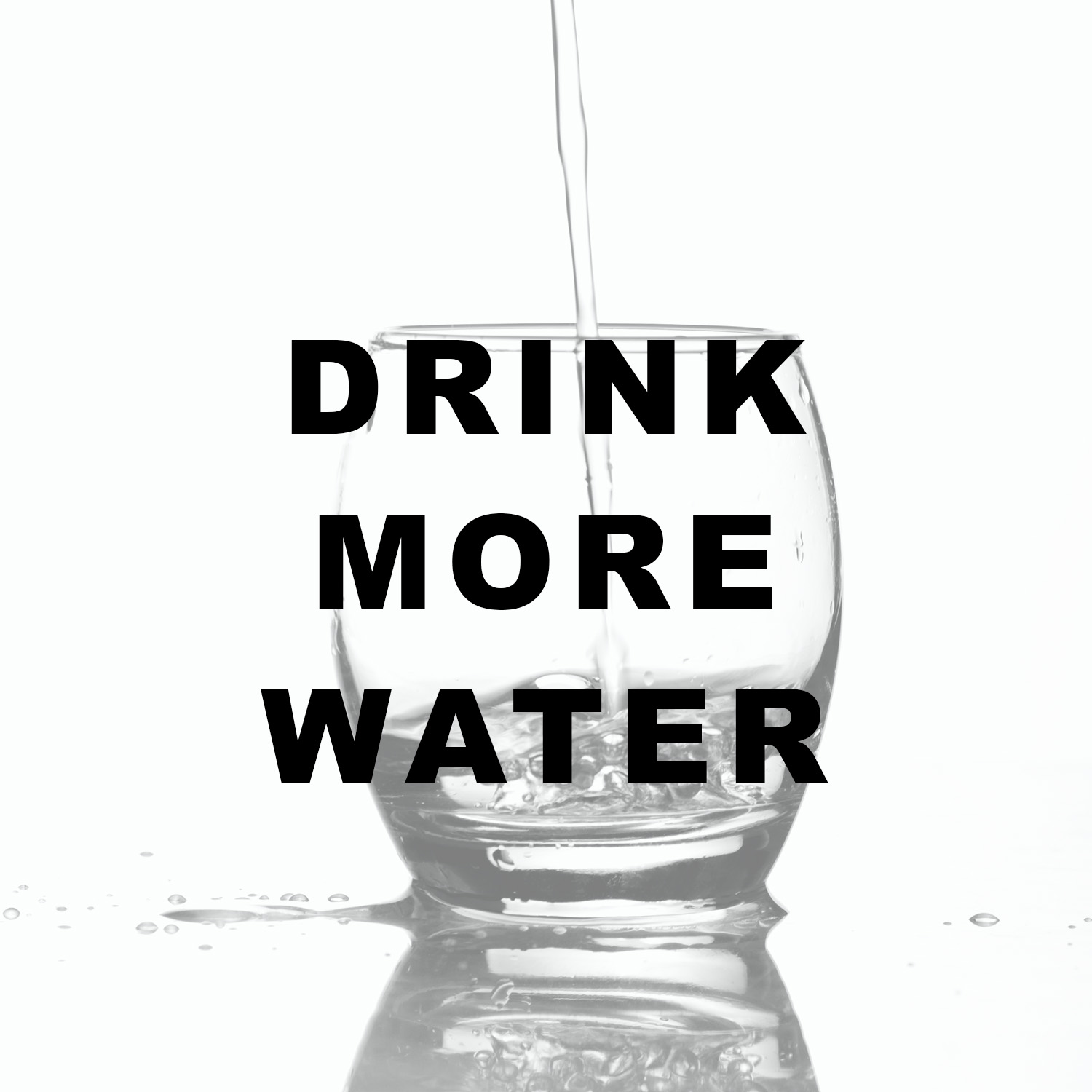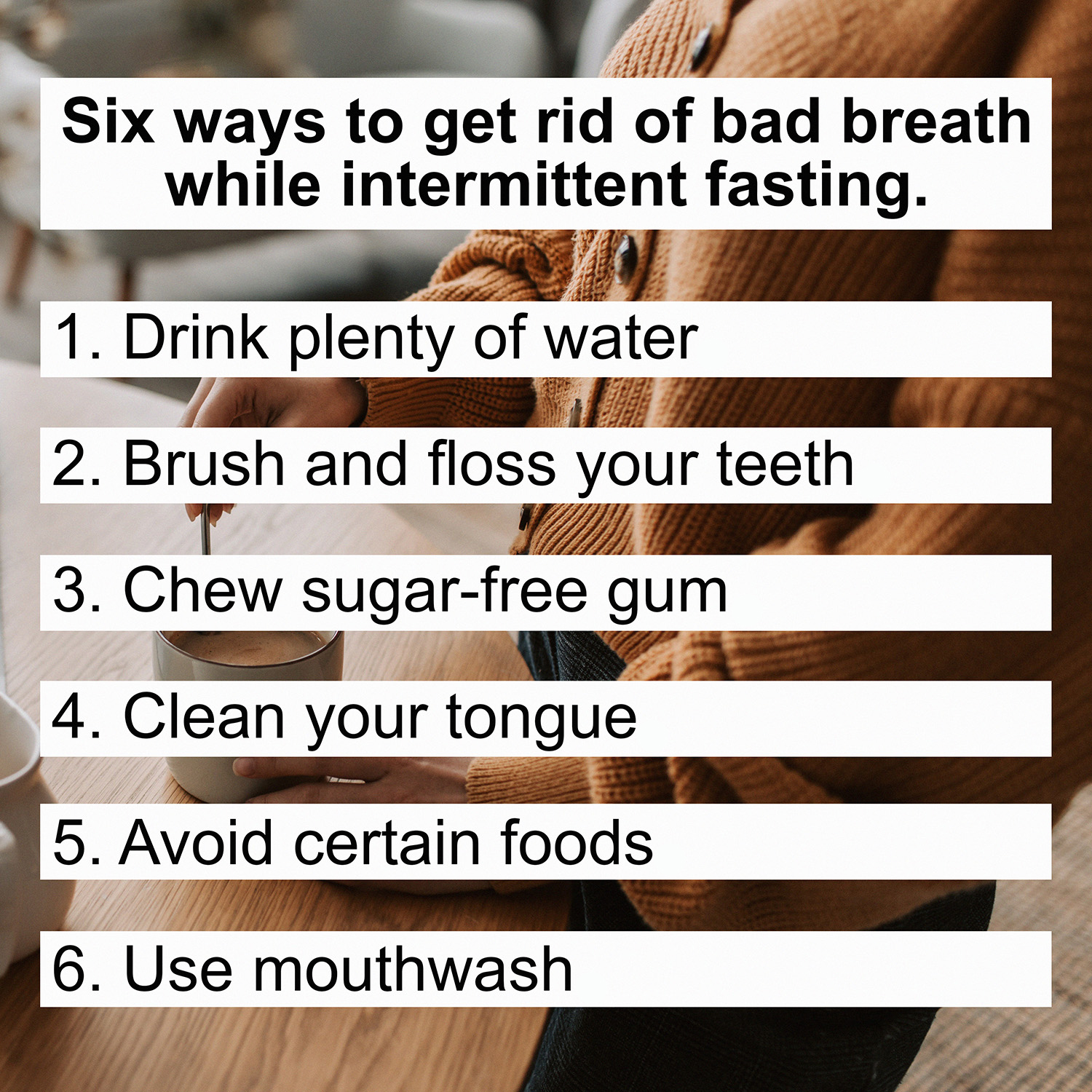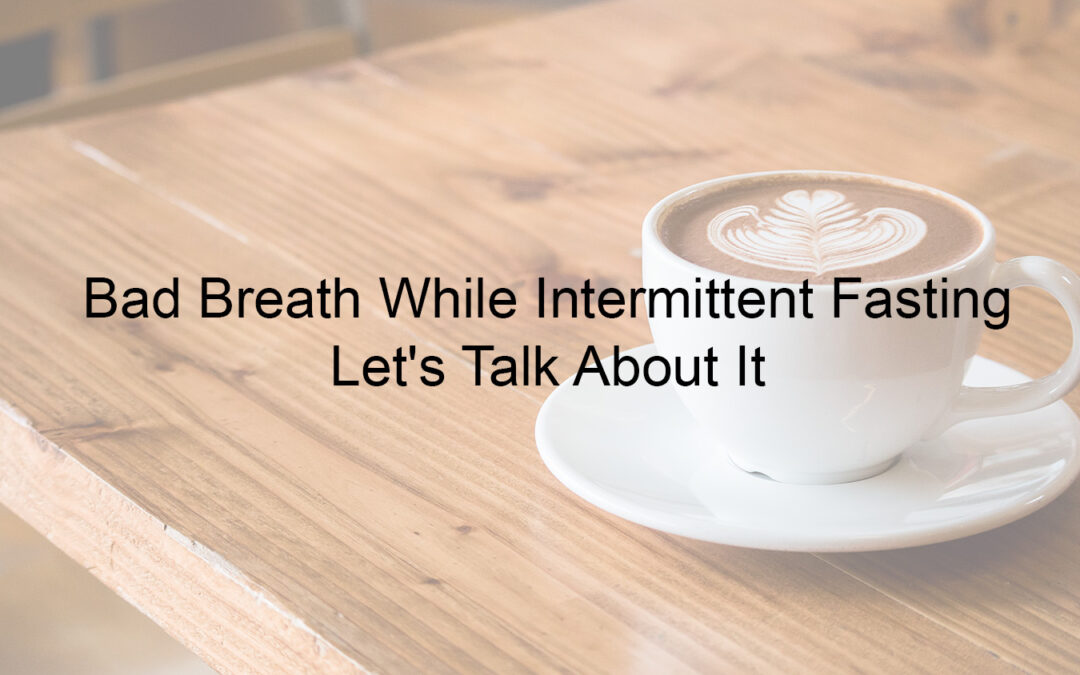Intermittent fasting is all the rage among health gurus, health scientists, and life coaches. But there is an unexpected side effect of IF that many people don’t talk about – bad breath!
That’s right. You read that correctly. While there are so many known health benefits associated with intermittent fasting, there are little-to-no drawbacks to intermittent fasting aside from the occasional bout of halitosis. But if you have bad breath while intermittent fasting, don’t fret!
In this blog, we’re going to discuss the link between intermittent fasting and bad breath and discuss ways to fix it. So, let’s take a moment to understand why intermittent fasting can sometimes cause bad breath in the first place.
What Causes Bad Breath While Intermittent Fasting?

There are a few reasons why someone deep into their IF journey may experience bad breath, so let’s take a second to break those down. First and foremost, one of the most common causes of bad breath while fasting is dehydration. When the body is dehydrated, it’s unable to produce enough saliva to keep the mouth clean and free of bacteria. This can cause food particles and bacteria to accumulate in the mouth and release foul-smelling odors.
Many people adapt well to the intermittent eating windows but seem to struggle when it comes to getting their daily water intake. So, be sure to drink plenty of water throughout the day, even during your fasting windows.
Additionally, intermittent fasting can lead to ketosis, a process where the body begins to break down fat for energy. Ketosis (and the subsequent release of ketones into your body) is infamous for causing bad breath. Ketones are compounds that have a strong, unpleasant smell. So, to reduce bad breath caused by ketosis, you can simply add a few carbohydrates into your eating window.
Of course, these are just the reasons related to intermittent fasting. Other causes of bad breath while intermittent fasting include poor oral hygiene, gum disease, dry mouth, and certain medications. Knowing what’s causing your bad breath is vital to figuring out how to fix it. Speaking of which, let’s talk about that now!
How to Get Rid of Bad Breath During Intermittent Fasting

There are many causes for halitosis, and only a few of them are related to intermittent fasting. But if you’re struggling with intermittent fasting and bad breath, you’ve come to the right place. Here are six methods that might help you get rid of bad breath while intermittent fasting.
1. Drink Plenty of Water
As I mentioned above, dehydration is one of the primary causes of bad breath while intermittent fasting. And what’s the best way to fix dehydration? You guessed it – drinking plenty of water! So, if you find your breath too much to handle, drink lots of water. And remember, water quality matters, so try to drink high-quality water with lots of minerals and electrolytes as often as possible. Be aware, and read your electrolytes packets because some can have sugar or extra calories in them. You want to avoid those during your fasting window.
2. Brush and Floss Your Teeth
If you’re worried about your bad breath, you can also use the tried-and-true method of flossing and brushing your teeth. Poor dental hygiene is one of the leading causes of halitosis, so this might solve all your problems. But if something else is causing your bad breath, this will at least be a temporary solution for immediate symptom relief.
3. Chew Sugar-Free Gum
You might think that chewing gum while intermittent fasting is a no-no, but it depends. Sugar-free gum has a minimal effect on insulin levels and contains few calories, so it won’t necessarily break your fast. However, if you’re on a stricter intermittent fasting routine, you may not want to use this one. Also, some types of gum have a lot of sugar and will definitely break your fast, so if you use this method as a temporary solution for bad breath, you should stick to the sugar-free kind.
4. Clean Your Tongue
Tongues are breeding grounds for bacteria and food particles that cause bad breath. So, if you have bad breath while intermittent fasting, you might try cleaning your tongue! Cleaning or scraping your tongue on a regular basis is incredibly effective at helping people avoid bad breath. You can also use a copper tongue cleaner, which costs around $5 and lasts a lifetime. I have used my Ayurveda tongue cleaner for years with success. And if you’re ever in a bind, scraping your tongue with a spoon will work as well.
5. Avoid Certain Foods
There are many foods out there that are known for causing bad breath, like garlic, raw onions, dairy, horseradish, coffee, and even surprisingly, citrus fruits! So, if you’re struggling with bad breath while intermittent fasting, you might avoid eating some of these foul-breath-causing foods during your eating windows.
6. Use Mouthwash
Another temporary solution to bad breath is the all-important mouthwash. If you’re feeling self-conscious, this can be a quick, temporary solution that’ll provide immediate relief. But remember, halitosis may be caused by a more significant, underlying issue, so you’ll need to address the root cause of your bad breath if you want to experience long-term relief.
Bonus Tip. Nose Breathing vs. Mouth Breathing
Another cause of bad breath that effects a significant part of the population is breathing through the mouth instead of breathing through the nose. If you breath mostly with your mouth it can be a long-term cause of bad breath. There’s a ton of content online about the various health effects of these 2 types of breathing, so it’s definitely worth your time and attention.
There are even guides that’ll teach you how to breath with your nose rather than your mouth. And if you’re looking for solutions, there’s also a special tape that you can put on your mouth (while you sleep, for example) to help train your body to breathe through your nose instead of your mouth.
Get Extra Support While Intermittent Fasting
While there are many health benefits associated with intermittent fasting, including reducing bloat, regulating hormones, and reversing insulin resistance, there are some potential side effects like bad breath. But if you want to take control of your bad breath before it gets out of hand, you now have the tools to get the job done.
If you’re serious about taking care of your health, you’re definitely on the right track with intermittent fasting. And if you’re looking for a little bit of guidance, you’re in luck. Schedule a consultation today to discuss how I can help you succeed on your IF journey!




